Study MBBS in Nepal 2025-26: Top Colleges, Fees, and Admission Details for MBBS in Nepal for Indian Students
MBBS in Nepal is one of the most preferred choices for Indian students planning to pursue MBBS abroad due to its proximity to India, affordable medical education, and a curriculum aligned with NMC guidelines. With over 15 NMC-approved medical colleges, highly qualified faculty, and Indian-style living facilities, MBBS in Nepal for Indian Students ensures a smooth transition into medical studies with minimal cultural or language barriers. The MBBS in Nepal fees generally range from ₹45 to ₹65 lakhs for the entire course, covering tuition, hostel, and other academic expenses. Top medical colleges like Institute of Medicine (IOM), B.P. Koirala Institute of Health Sciences (BPKIHS), Kathmandu Medical College, and Manipal College of Medical Sciences offer excellent academic infrastructure, clinical exposure, and growing FMGE pass percentages. Since Nepal allows direct admission based on NEET scores, many students opt for this reliable and nearby destination. This article explains every important detail such as Nepal MBBS eligibility, admission process, hostel facilities, visa rules (none required for Indians), and how University Insights can assist students in securing admission in the top MBBS universities in Nepal for the 2023–26 intake.
About MBBS in Nepal 2025-26
Nepal, nestled in the lap of the Himalayas, is a country of extraordinary natural beauty, cultural richness, and spiritual depth. Known for its majestic mountain ranges, including the world-famous Mount Everest, Nepal attracts adventurers and nature lovers from all corners of the globe. The country is also renowned for its vibrant heritage, with UNESCO World Heritage Sites such as Kathmandu Valley, Lumbini (the birthplace of Lord Buddha), and numerous ancient temples and monasteries that reflect its deep historical and religious significance.
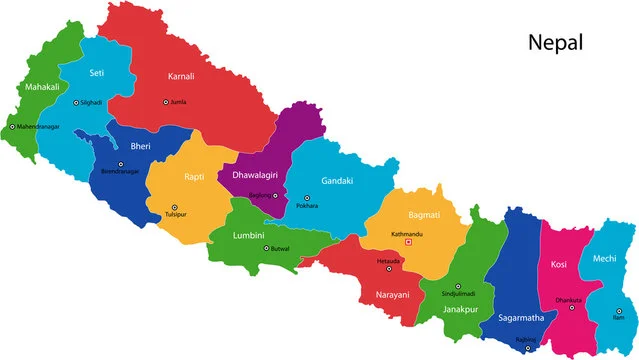
Nepal’s diverse topography ranges from the lush Terai plains to the rugged mountain terrains, providing a habitat for a wide variety of flora and fauna. The country’s cultural mosaic is equally diverse, with over 120 ethnic groups and multiple languages, creating a rich tapestry of traditions, festivals, and customs. The warmth and hospitality of the Nepali people further enhance the charm of this beautiful nation.
Overview of MBBS in Nepal 2025-26
Pursuing an MBBS in Nepal has become a popular choice for many international students, particularly from India. Nepal offers a unique blend of high-quality medical education and affordable tuition fees, making it an attractive destination for aspiring doctors. The country boasts several well-established medical colleges and universities that are recognized by prominent global medical councils such as the NMC, WHO, SLMC, GMC(UK), FAIMER, ECFMG, USA and more.
The medical curriculum in Nepal is designed to meet international standards, ensuring that students receive comprehensive training in both theoretical and practical aspects of medicine. English is the medium of instruction, which eliminates language barriers for international students. Moreover, the cultural similarities between Nepal and neighboring countries like India provide a comfortable living environment for students.
Medical colleges in Nepal are equipped with modern facilities, experienced faculty, and extensive clinical exposure, allowing students to gain hands-on experience in diverse medical fields. Additionally, the close proximity to India and the ease of travel make it convenient for Indian students to stay connected with their families.
Studying MBBS in Nepal not only provides an excellent academic foundation but also an enriching cultural experience, making it a fulfilling journey for future medical professionals.
Why MBBS in Nepal 2025-2026?
Studying MBBS in Nepal can be a viable option for several reasons:
- Quality Education: Nepal has several medical colleges that offer internationally recognized MBBS programs. These colleges are affiliated with prestigious universities and follow rigorous academic standards.
- Affordable Tuition Fees: Compared to many other countries, the cost of studying MBBS in Nepal is relatively affordable. This makes it an attractive option for students seeking quality education without incurring substantial debt.
- Similar Curriculum to India: For Indian students, the curriculum and medical education system in Nepal are quite similar to those in India. This familiarity can make it easier for Indian students to adjust and excel in their studies.
- Recognition and Accreditation: Many medical colleges in Nepal are recognized by medical councils of various countries, including the Medical Council of India (MCI). This allows graduates to practice in India after clearing the requisite exams.
- Cultural and Geographic Proximity: Nepal shares cultural and geographical similarities with neighboring countries like India. This can make it easier for international students to adapt to the local environment.
- Clinical Exposure: Nepal offers diverse clinical exposure due to its varied population and healthcare challenges. This provides students with a broad range of clinical experiences, which are crucial for their medical training.
- English-Medium Instruction: Most medical colleges in Nepal conduct their courses in English, which is beneficial for international students who may not be fluent in Nepali.
- Opportunities for Volunteering and Internships: Nepal presents opportunities for medical students to engage in volunteer work and internships in rural and underserved areas. This can provide valuable practical experience and contribute to personal and professional growth.
Overall, studying MBBS in Nepal can be a rewarding experience for students seeking quality medical education in a culturally rich environment, at an affordable cost, and with opportunities for diverse clinical exposure.
Want To Study in Nepal?
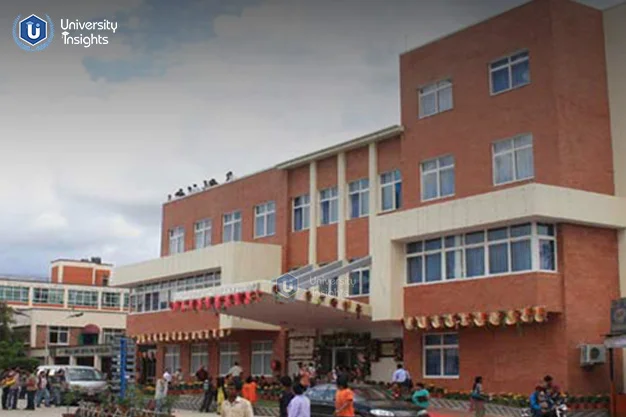
Why MBBS in Nepal 2025-26
Studying MBBS in Nepal can be a viable option for several reasons:
- Quality Education: Nepal has several medical colleges that offer internationally recognized MBBS programs. These colleges are affiliated with prestigious universities and follow rigorous academic standards.
- Affordable Tuition Fees: Compared to many other countries, the cost of studying MBBS in Nepal is relatively affordable. This makes it an attractive option for students seeking quality education without incurring substantial debt.
- Similar Curriculum to India: For Indian students, the curriculum and medical education system in Nepal are quite similar to those in India. This familiarity can make it easier for Indian students to adjust and excel in their studies.
- Recognition and Accreditation: Many medical colleges in Nepal are recognized by medical councils of various countries, including the Medical Council of India (MCI). This allows graduates to practice in India after clearing the requisite exams.
- Cultural and Geographic Proximity: Nepal shares cultural and geographical similarities with neighboring countries like India. This can make it easier for international students to adapt to the local environment.
- Clinical Exposure: Nepal offers diverse clinical exposure due to its varied population and healthcare challenges. This provides students with a broad range of clinical experiences, which are crucial for their medical training.
- English-Medium Instruction: Most medical colleges in Nepal conduct their courses in English, which is beneficial for international students who may not be fluent in Nepali.
- Opportunities for Volunteering and Internships: Nepal presents opportunities for medical students to engage in volunteer work and internships in rural and underserved areas. This can provide valuable practical experience and contribute to personal and professional growth.
studying MBBS in Nepal can be a rewarding experience for students seeking quality medical education in a culturally rich environment, at an affordable cost, and with opportunities for diverse clinical exposure.
Want To Study in Nepal?
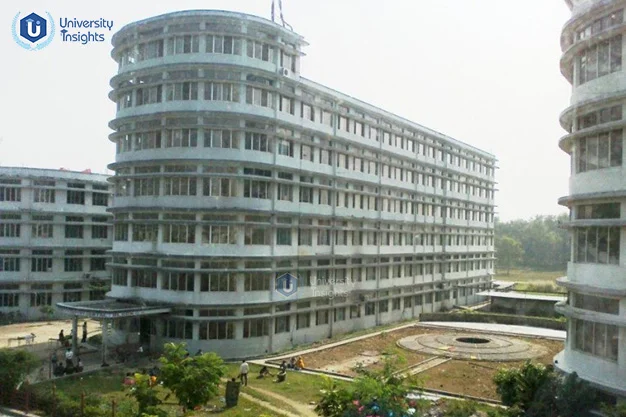
Benefits of Studying MBBS in Nepal for Indian Students
Affordable Fees and Cost of Living for MBBS in Nepal
One of the primary reasons Indian medical students choose to study MBBS in Nepal is the affordability. The fee structure for MBBS in Nepal in Nepalese Medical Colleges is relatively lower compared to private medical colleges in India. Additionally, the cost of living in Nepal is reasonable, making it financially viable for students and their families.
No Language Barrier | Study MBBS In Nepal
The medium of instruction in most Medical Colleges in Nepal is English, which eliminates the language barrier for Indian students. This ensures that students can focus entirely on their studies without facing any linguistic challenges.
Similar Curriculum and Syllabus
The MBBS curriculum in Nepal is similar to that in India, which makes it easier for students to adapt. This also ensures that Indian students are well-prepared for medical licensing exams in India after completing their MBBS in Nepal.
Cultural Similarities
Nepal shares many cultural similarities with India, including language, food, and traditions. This cultural familiarity helps Indian students feel more at home and comfortable while studying abroad.
Recognized Medical Degrees for MBBS in Nepal
Medical degrees obtained from Nepalese colleges are recognized by the National Medical Commission of India (NMC), WHO, SLMC, GMC(UK), FAIMER, ECFMG, USA and other international medical bodies. This recognition allows graduates to practice medicine in India and other countries after passing the necessary licensing exams.
Proximity to India
Nepal’s geographical proximity to India makes it convenient for students to travel back home during holidays and emergencies. This ease of travel adds to the appeal of studying in Nepal for Indian students.
Want To Study in Nepal?
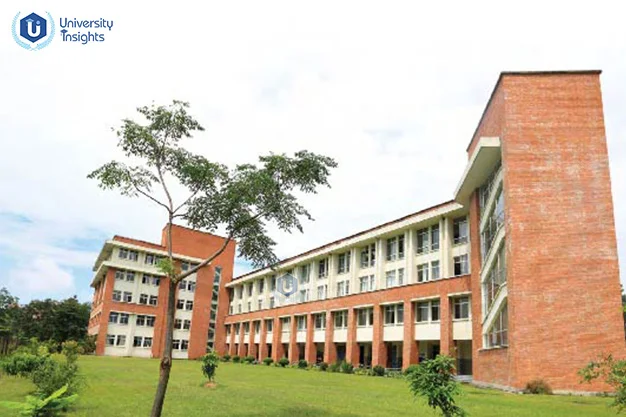
Eligibility for MBBS in Nepal 2025-26
To study MBBS in Nepal, Indian students must meet specific eligibility requirements. Understanding these criteria is crucial for aspiring medical students aiming to pursue their education in Nepal.
Age and Educational Qualifications – MBBS Nepal 2025-26
Candidates must be at least 17 years old by the end of the year they seek admission. They should have completed their higher secondary education (10+2) with Physics, Chemistry, and Biology as major subjects. A minimum of 50% aggregate marks in these subjects is typically required.
NEET Requirement for MBBS in Nepal 2025-26
Indian students must qualify for the National Eligibility cum Entrance Test (NEET) to be eligible for admission to medical colleges in Nepal. The qualifying score of NEET UG 2025 is 164 out of 720 as per NTA. NEET is a mandatory requirement for studying MBBS Abroad and ensures that students meet the necessary standards for medical education.
Want To Study in Nepal?
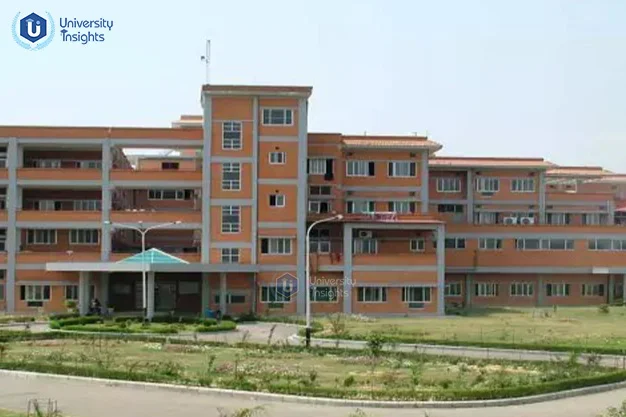
Admission Process for MBBS in Nepal 2025-26
The admission process for MBBS in Nepal involves several essential steps that Indian students must follow to secure a seat in a top medical college.
- Research and Selection: Identify the best medical colleges in Nepal that suit your preferences and budget.
- Application Form: Fill out the application form available on the official websites of the chosen colleges.
- Document Submission: Submit all required documents, including academic certificates, NEET scorecard(164 Marks in NEET UG 2025 is required), passport, and other relevant documents.
- Entrance Examination: Some colleges may require an entrance exam specific to the institution.
- Merit List: Colleges will publish a merit list based on the entrance exam and NEET UG results.
- Interview/Counseling: Shortlisted candidates may be called for an interview or counseling session.
- Admission Confirmation: Upon selection, pay the admission fee to confirm your seat.
Important Dates and Deadlines for MBBS in Nepal 2025-26
Staying informed about the key dates and deadlines is crucial for a successful application process.
- Application Start Date: Varies by college, typically starts in May-June.
- Document Submission Deadline: Usually within a month of the application start date. As per latest information the Last date to apply is 26 July 2025.
- Entrance Exam Dates: Specific to each college, often conducted in July-August. As per latest information the CEE Exam Date is 16 August 2025.
- Merit List Publication: Typically in August-September.
- Counseling/Interview Dates: Scheduled shortly after the merit list publication.
- Final Admission Deadline: Generally in September-October.
Documents for MBBS in Nepal Admission
Ensure you have all necessary documents ready for submission to avoid any delays in the admission process.
- Academic transcripts and certificates (10th and 12th grades)
- NEET UG scorecard(with 164 Marks in NEET UG 2025 as qualification Marks)
- Passport-sized photographs
- Proof of nationality (passport)
- Birth certificate
- Medical fitness certificate
- Application form and fee receipt
- Character certificate from the last attended school/college
- Migration certificate (if applicable)
By following these steps and being prepared with all required documents, Indian students can navigate the admission process for MBBS in Nepal smoothly and efficiently.
Want To Study in Nepal?
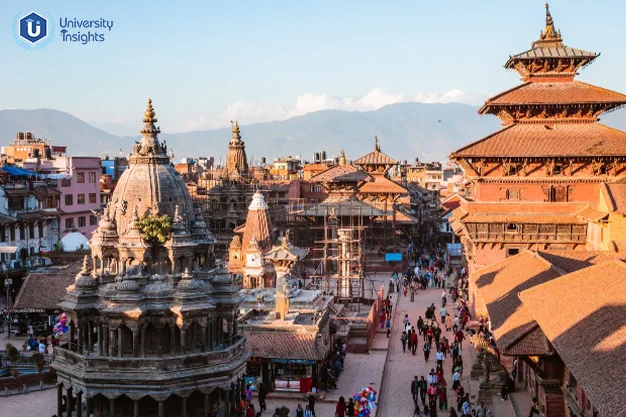
Top & Best Medical Colleges for Indian Students for MBBS in Nepal 2025-26
Nepal is home to numerous prestigious medical colleges, universities of Nepal that offer excellent education and facilities for Indian students. Here is a detailed table listing of MBBS Universities in Nepal, MBBS in the medical colleges of Nepal, along with their tuition fees, NEET qualification(164 Marks in NEET UG 2024) requirements, additional fees, and other relevant information.
| S.No | University Name | Tuition Fees/Year (USD) | Tuition Fees/Year (INR) | Hostel Fees/Year (USD) | Hostel Fees/Year (INR) |
|---|---|---|---|---|---|
| 1 | Chitwan Medical College | 6,000 USD | 492,000 INR | 1,000 USD | 82,000 INR |
| 2 | B.P Koirala Institute of Health Sciences | 7,500 USD | 615,000 INR | 1,200 USD | 98,400 INR |
| 3 | Devdaha Medical College | 6,500 USD | 533,000 INR | 900 USD | 73,800 INR |
| 4 | Janaki Medical College | 5,800 USD | 475,600 INR | 800 USD | 65,600 INR |
| 5 | Birat Medical College | 6,200 USD | 508,400 INR | 1,000 USD | 82,000 INR |
| 6 | Kathmandu Medical College | 7,000 USD | 574,000 INR | 1,000 USD | 82,000 INR |
| 7 | Tribhuvan University | 5,500 USD | 451,000 INR | 900 USD | 73,800 INR |
| 8 | Manipal Medical College | 7,200 USD | 590,400 INR | 1,200 USD | 98,400 INR |
| 9 | KIST Medical College | 6,000 USD | 492,000 INR | 1,000 USD | 82,000 INR |
| 10 | Gandaki Medical College | 6,300 USD | 516,600 INR | 900 USD | 73,800 INR |
| 11 | Nobel Medical College | 7,000 USD | 574,000 INR | 1,200 USD | 98,400 INR |
| 12 | Lumbini Medical College | 6,500 USD | 533,000 INR | 1,000 USD | 82,000 INR |
Want To Study in Nepal?
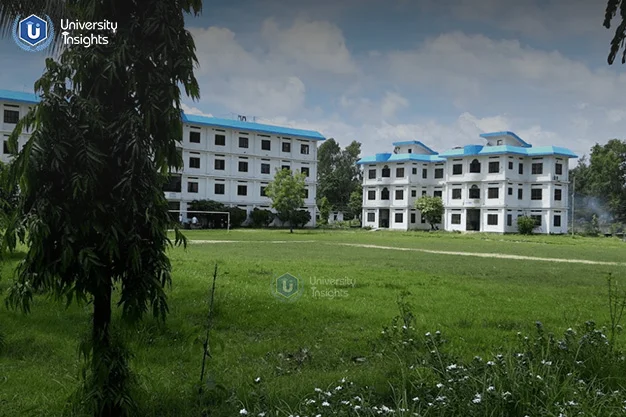
Fee Structure for MBBS in Nepal 2025-26
Fees in Nepal – Understanding the fee structure for MBBS in Nepal is crucial for Indian students. The fees are generally lower compared to private medical colleges in India, making Nepal an attractive destination for medical education.
Tuition Fees | MBBS Nepal 2025-26
Tuition fees for MBBS study in Nepal vary by college. Below is a detailed table outlining the tuition fees for some of the Top Medical Colleges in Nepal:
College Name | Tuition Fee (USD) | Duration (Years) | Additional Fees |
58 Lakhs | 5.5 | Hostel and other facilities | |
61 Lakhs | 5.5 | Accommodation and amenities | |
62 Lakhs | 5.5 | Hostel and other services | |
55 Lakhs | 5.5 | Hostel and additional charges | |
55 Lakhs | 5.5 | Hostel and other facilities | |
60.5 Lakhs | 5.5 | Accommodation and amenities | |
54 Lakhs | 5.5 | Hostel and other services | |
55 Lakhs | 5.5 | Accommodation and amenities | |
52 Lakhs | 5.5 | Hostel and other facilities | |
57 Lakhs | 5.5 | Hostel and other services | |
53 Lakhs | 5.5 | Accommodation and amenities | |
55 Lakhs | 5.5 | Hostel and additional charges | |
52 Lakhs | 5.5 | Hostel and other facilities | |
57 Lakhs | 5.5 | Accommodation and amenities | |
60 Lakhs | 5.5 | Hostel and other services |
Other Associated Costs for MBBS in Nepal
Apart from tuition fees, students must consider other associated costs, including:
- Hostel Fees: Ranges from $1000 to $1500 per year
- Food and Living Expenses: Approximately $ 800 to $1000 per year
- Books and Study Materials: Around $ 50 to $100 per year
Miscellaneous Expenses: Including health insurance, transportation, and personal expenses, which can total around $1,000 per year
Want To Study in Nepal?
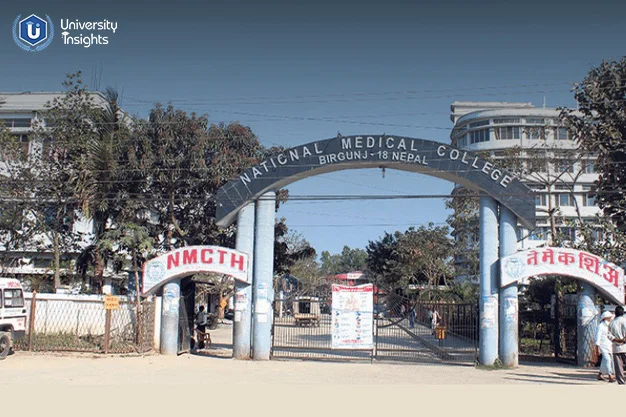
Cost of MBBS in Nepal & Cost Comparison with Other Countries for MBBS Abroad 2025-26
Nepal is affordable. Studying MBBS in Nepal is cost-effective compared to other popular destinations like MBBS in Russia, MBBS in China, MBBS in Egypt, MBBS in Bangladesh, and private medical colleges in India.
Studying MBBS in Nepal vs MBBS abroad in Other Countries
Below is a comparison of the average cost of studying MBBS in Nepal with other countries:
|
Country |
Average Tuition Fee (USD) |
Cost of Living (USD/year) |
Total Cost (USD) |
|
50,000 – 60,000 |
3,000 – 5,000 |
75,000 – 90,000 |
|
|
15,000 – 35,000 |
2,000 – 3,500 |
40,000 – 70,000 |
|
|
25,000 – 40,000 |
1,500 – 2,500 |
50,000 – 65,000 |
|
|
20,500 – 32,400 |
6,000 – 9,600 |
45,000 – 60,000 |
|
|
12,000 – 25,000 |
3,600 – 6,000 |
30,000 – 45,000 |
|
|
30,000 – 45,000 |
1,500 – 2,000 |
40,000 – 55,000 |
|
|
India (Private) |
100,000 – 150,000 |
3,000 – 5,000 |
115,000 – 170,000 |
Choosing to study MBBS in Nepal offers Indian students a cost-effective and high-quality medical education. With affordable tuition fees, reasonable living costs, and recognized degrees, MBBS in Nepal stands out as an excellent destination for pursuing a medical career
Want To Study in Nepal?
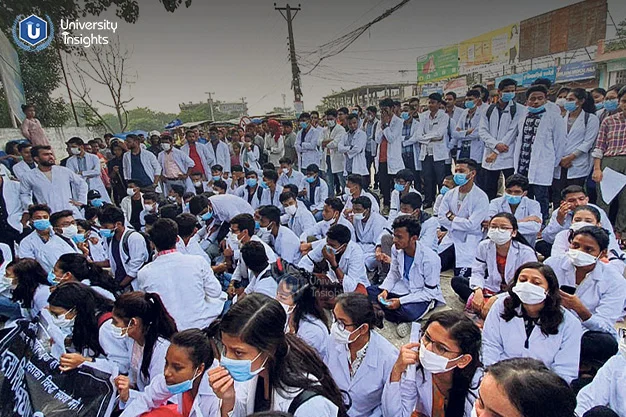
MBBS in Nepal 2025-26 Curriculum and Syllabus
The MBBS in Nepal curriculum is structured to provide comprehensive medical education, combining theoretical knowledge and practical skills. The program is divided into three main phases: Pre-Clinical, Para-Clinical, and Clinical. The total duration of the course is 5.5 years, including a mandatory one-year internship.
Pre-Clinical Phase – MBBS in Nepal 2025-26
The Pre-Clinical phase covers the first two years (four semesters) and focuses on the foundational sciences necessary for medical education.
Subjects Covered:
- Anatomy: Study of the structure of the human body.
- Physiology: Study of the functions and mechanisms in a living system.
- Biochemistry: Understanding the chemical processes within and related to living organisms.
Para-Clinical Phase – MBBS in Nepal 2025-26
The Para-Clinical phase spans the next three semesters and builds on the knowledge from the Pre-Clinical phase, introducing more applied medical sciences.
Subjects Covered:
- Pathology: Study of diseases, their causes, processes, development, and consequences.
- Pharmacology: Study of drugs and their effects on the human body.
- Microbiology: Study of microorganisms and their interactions with humans.
- Forensic Medicine: Application of medical knowledge to legal issues.
- Community Medicine: Focus on health and disease prevention at the community level.
Clinical Phase – MBBS in Nepal 2025-26
The Clinical phase, covering the last four semesters, focuses on the practical application of medical knowledge in clinical settings.
Subjects Covered:
- Medicine: Including specialties like psychiatry, dermatology, and venereology.
- Surgery: Including Orthopaedics, Anaesthesiology, radiology, and dental surgery.
- Obstetrics and Gynaecology: Study of female reproductive organs and childbirth.
- Paediatrics: Medical care of infants, children, and adolescents.
- Ophthalmology: Study of eye and vision care.
- Otorhinolaryngology (ENT): Study of ear, nose, and throat conditions.
Teaching Methodology – MBBS in Nepal 2025-26
The teaching methodology in Nepalese medical colleges is designed to provide a balanced mix of theoretical knowledge and practical experience, ensuring that students are well-prepared for their medical careers.
Classroom Learning
Classroom learning involves traditional lectures, interactive sessions, and group discussions. The medium of instruction is primarily English, which is beneficial for Indian students. This phase ensures that students grasp the fundamental concepts of medical sciences.
Components:
- Lectures: Detailed sessions on medical subjects conducted by experienced faculty.
- Group Discussions: Interactive discussions to encourage critical thinking and collaborative learning.
- Seminars: Specialized sessions focusing on particular topics or recent advancements in medicine.
Practical Training and Internships
Practical training is an essential part of the MBBS curriculum in Nepal. Students undergo rigorous training in laboratories and hospitals to develop their clinical skills.
Components:
- Laboratory Work: Hands-on experience in labs to understand the practical aspects of subjects like anatomy, physiology, and biochemistry.
- Clinical Postings: Rotational internships in various hospital departments, allowing students to apply their theoretical knowledge to real-life medical situations.
- Internship: The final year is dedicated to a compulsory rotating internship where students work under supervision in hospitals, gaining practical experience in patient care.
The MBBS curriculum in Nepal is designed to provide a holistic medical education, ensuring that students are well-prepared for their medical careers. With a blend of classroom learning and extensive practical training, Nepalese medical colleges offer a robust platform for aspiring medical professionals
Want To Study in Nepal?
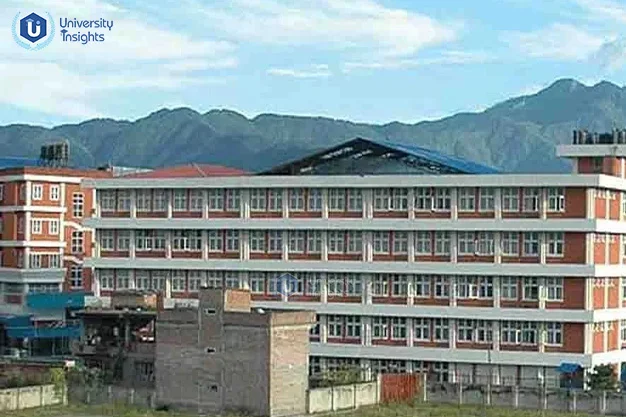
Scholarships and Financial Aid
Nepal offers various scholarships for MBBS students to help alleviate the financial burden and support meritorious students. These scholarships are provided by the Nepalese government, private organizations, and international bodies.
Types of Scholarships Available
- Government Scholarships: The Nepalese government offers scholarships to both domestic and international students based on academic merit and financial need. These scholarships often cover tuition fees and living expenses.
- Institutional Scholarships: Many medical colleges in Nepal offer scholarships to top-performing students. These scholarships may be partial or full and are based on academic performance.
- Private and International Scholarships: Various private organizations and international bodies provide scholarships for MBBS students. These scholarships aim to support students from developing countries and those with outstanding academic records.
Eligibility for Scholarships
To be eligible for scholarships, students generally need to meet specific criteria, which may include:
- Academic Performance: High grades in previous educational qualifications (e.g., 10+2 with PCB and English).
- NEET Scores: Good scores in the NEET exam are often required, especially for Indian students.
- Financial Need: Some scholarships are awarded based on the financial needs of the students.
- Entrance Exams: Performance in entrance exams conducted by the respective medical colleges in Nepal.
- Other Criteria: Specific requirements set by the scholarship provider, such as community service, leadership skills, or research interests.
Financial Aid Options
Financial aid is available for MBBS students in Nepal through various means, including loans and payment plans. These options help students manage the cost of their education effectively.
Loans and Payment Plans
- Educational Loans: Many banks and financial institutions offer educational loans to students pursuing MBBS in Nepal. These loans cover tuition fees, living expenses, and other related costs.
- Interest Rates: Interest rates for educational loans vary, but they are generally lower compared to other types of loans.
- Repayment Terms: Repayment typically starts after the completion of the course, with flexible repayment options.
- Institutional Payment Plans: Some medical colleges offer payment plans that allow students to pay their fees in installments rather than a lump sum.
- Installment Plans: Students can pay their tuition fees in multiple installments spread across the academic year.
- Deferred Payment Plans: Some institutions may offer deferred payment plans where payment is delayed until after graduation or until the student starts earning.
Detailed Table of Scholarships and Financial Aid Options
Scholarship/Fund Provider | Eligibility Criteria | Coverage | Application Process |
Nepal Government Scholarships | High academic performance, financial need | Tuition fees, living expenses | Apply through Ministry of Education |
Institutional Scholarships (e.g., KMC) | Top academic performers, entrance exam scores | Partial or full tuition fee waiver | Apply through college administration |
Private Organizations (e.g., NSF) | Meritorious students, community service | Tuition fees, research grants | Direct application to organization |
Educational Loans (e.g., SBI, HDFC) | Admission in recognized MBBS program, NEET scores | Tuition fees, living expenses, books | Apply through bank |
Institutional Payment Plans | Enrolled students | Tuition fees in installments | Apply through college finance office |
For students pursuing MBBS in Nepal, various scholarships and financial aid options are available to support their educational journey. By meeting the eligibility criteria and understanding the application process, students can significantly reduce the financial burden of medical education.
Want To Study in Nepal?

Living in Nepal as an MBBS Student
Finding suitable accommodation is a crucial aspect of living in Nepal as an MBBS student. Students can choose between on-campus and off-campus housing based on their preferences and budget.
On-Campus Housing
Most medical colleges in Nepal offer on-campus housing facilities. These hostels are located within the college premises, providing convenience and security to students.
Advantages of On-Campus Housing:
- Proximity to Classes: Being on campus means you are close to your classrooms, libraries, and other facilities.
- Safety and Security: On-campus hostels are generally secure, with 24/7 surveillance and controlled access.
- Community Living: Living with fellow students fosters a sense of community and provides ample opportunities for group study and collaboration.
Cost of On-Campus Housing: The cost of on-campus housing varies by college but typically ranges from $1,000 to $2,500 per year, depending on the amenities provided.
Off-Campus Housing
Off-campus housing provides more freedom and flexibility, allowing students to choose their living arrangements.
Types of Off-Campus Housing:
- Apartments: Students can rent apartments either individually or share with roommates.
- Shared Housing: Many students opt for shared housing to reduce costs.
Advantages of Off-Campus Housing:
- Flexibility: More choices in terms of location, size, and amenities.
- Privacy: Greater privacy compared to shared dorm rooms.
Cost of Off-Campus Housing: The cost of renting an apartment off-campus in Nepal varies by location but generally ranges from $100 to $300 per month.
Cost of Living in Nepal
The cost of living in Nepal is relatively affordable compared to other countries. Below is a breakdown of typical monthly expenses for an MBBS student in Nepal.
Monthly Expenses
Expense Category
Estimated Monthly Cost (USD)
Accommodation
$100 – $250
Food
$50 – $100
Transportation
$20 – $50
Utilities
$30 – $50
Internet and Mobile
$15 – $30
Miscellaneous
$20 – $50
Total
$235 – $530
Tips for Budgeting
Managing finances effectively is essential for students to ensure they can focus on their studies without financial stress.
Budgeting Tips:
- Plan Your Expenses: Create a monthly budget to track your income and expenses.
- Cook at Home: Prepare meals at home to save on food costs.
- Use Public Transport: Utilize public transportation to reduce travel expenses.
- Limit Luxuries: Avoid unnecessary expenditures on luxury items and entertainment.
- Share Housing: Consider sharing accommodation with fellow students to lower rental costs.
Living in Nepal as an MBBS student can be a rewarding experience with the right planning and budgeting. Whether choosing on-campus or off-campus housing, understanding the cost of living and managing expenses effectively can ensure a comfortable and focused academic journey
Want To Study in Nepal?

Career Opportunities After MBBS in Nepal
Graduating with an MBBS degree from Nepal opens a multitude of career paths for students, both within Nepal and internationally.
Medical Practice in Nepal
Public and Private Hospitals: Graduates can work in various public and private hospitals across Nepal. The healthcare sector in Nepal is growing, and there is a consistent demand for qualified doctors.
- Government Hospitals: Provide stable job opportunities with benefits like job security and pensions.
- Private Hospitals: Often offer higher salaries and better facilities.
Clinical Practice: Graduates can start their own clinics or join existing private practices. This allows for more autonomy and potential higher earnings.
Rural Healthcare: There is a significant demand for healthcare services in rural areas of Nepal. Graduates can work with government or non-governmental organizations (NGOs) to provide essential healthcare services to underserved populations.
Opportunities in India and Abroad
India: MBBS graduates from Nepal can return to India to practice medicine, provided they clear the Foreign Medical Graduate Examination (FMGE) conducted by the Medical Council of India (MCI). Once they pass this exam, they are eligible to register with the MCI and start practicing in India.
Other Countries: Graduates can pursue medical practice in other countries, such as the United States, United Kingdom, Australia, and Canada. This typically requires passing the relevant medical licensing exams (e.g., USMLE for the US, PLAB for the UK).
International Organizations: Opportunities are also available with international health organizations such as the World Health Organization (WHO), Médecins Sans Frontières (Doctors Without Borders), and other global health initiatives.
Further Studies and Specializations
Further specialization after completing MBBS can significantly enhance career prospects and expertise.
Postgraduate Options
MD/MS Programs: Graduates can pursue postgraduate degrees (MD/MS) in various specialties like General Medicine, Surgery, Pediatrics, Obstetrics and Gynecology, and more. These programs are offered by medical universities in Nepal and other countries.
Diploma and Certificate Courses: There are various short-term diploma and certificate courses available that allow for specialization in fields such as Radiology, Dermatology, Anesthesiology, etc.
Fellowships: Fellowships offer advanced training in specific areas of medicine. These programs are available globally and often involve working closely with experienced professionals in the field.
Research and Academia: Graduates interested in research can pursue PhD programs in medical sciences. Opportunities are also available for teaching positions in medical colleges and universities.
Detailed Table of Career Opportunities
Career Path | Description | Requirements |
Medical Practice in Nepal | Work in public/private hospitals, start own clinics | MBBS degree, registration with Nepal Medical Council |
Rural Healthcare | Provide healthcare in rural areas | MBBS degree, often sponsored by NGOs |
Practice in India | Return to India to practice medicine | Clear FMGE, register with MCI |
International Practice | Work in countries like USA, UK, Australia | Pass relevant licensing exams (e.g., USMLE, PLAB) |
MD/MS Programs | Specialize in various medical fields | MBBS degree, entrance exams for postgraduate programs |
Diploma/Certificate Courses | Short-term specialization courses | MBBS degree |
Fellowships | Advanced training in specific areas | MBBS degree, sometimes MD/MS |
Research and Academia | Pursue PhD or teaching positions | MBBS degree, additional qualifications for PhD/teaching |
An MBBS degree from Nepal provides a solid foundation for a variety of career opportunities. Whether choosing to practice medicine in Nepal, returning to India, or pursuing further studies and specializations, graduates are well-prepared to meet the demands of the healthcare industry. This diverse range of options ensures that graduates can find fulfilling and rewarding careers in the medical field
Want To Study in Nepal?

Advantages and Disadvantages of Studying MBBS in Nepal
Pros of Studying MBBS in Nepal
Quality Education and Training
Studying MBBS in Nepal offers high-quality education and training comparable to international standards. Medical colleges in Nepal are recognized by global organizations such as the World Health Organization (WHO) and the National Medical Commission (NMC) of India, ensuring that the curriculum is rigorous and up-to-date. The education system in Nepal is structured to provide both theoretical knowledge and practical experience through extensive clinical postings and internships. Additionally, the presence of experienced faculty members, including many from India, ensures that students receive quality instruction and mentorship.
Affordable Fees and Living Costs
One of the significant advantages of studying MBBS in Nepal is the affordability. The tuition fees for MBBS programs in Nepal are considerably lower than those in private medical colleges in India and other countries. The average tuition fee ranges between USD 8,000 to 10,000 per year. Living costs in Nepal are also relatively low, with monthly expenses for accommodation, food, and other necessities ranging from USD 300 to 500. This makes Nepal a financially viable option for many students from middle-class backgrounds.
Cons of Studying MBBS in Nepal
Cultural and Language Barriers
While Nepal shares cultural similarities with India, there can still be some cultural and language barriers for Indian students. Although the medium of instruction is primarily English, students might face challenges in daily interactions if they are not familiar with the local languages (Nepali and regional dialects). This can sometimes lead to communication issues, particularly in clinical settings where interacting with local patients is essential.
Recognition of Degree
Although MBBS degrees from Nepal are recognized by the NMC and other international medical bodies, graduates must still clear the Foreign Medical Graduate Examination (FMGE) to practice in India. This exam can be challenging, and students must prepare thoroughly to pass. Additionally, the practical training in some Nepali medical colleges might not be as extensive as in some other countries, which could impact the hands-on experience of the graduates.
Summary Table of Pros and Cons
Pros of Studying MBBS in Nepal | Cons of Studying MBBS in Nepal |
High-quality education and training | Cultural and language barriers |
Affordable tuition fees and living costs | Requirement to clear FMGE for practicing in India |
Recognized by WHO and NMC | Possible limited practical training experience |
Experienced faculty | Communication issues in clinical settings |
Extensive clinical postings and internships |
Studying MBBS in Nepal provides a balanced mix of high-quality education, affordability, and recognized degrees, making it an attractive option for many students. However, potential cultural and language barriers, along with the need to pass additional licensing exams, are factors that students should consider. By understanding both the advantages and disadvantages, students can make an informed decision about pursuing their medical education in Nepal
Want To Study in Nepal?

Frequently Asked Questions about MBBS in Nepal 2025-2026
Why consider MBBS in Nepal?
Nepal offers high-quality medical education with affordable tuition fees compared to many countries. Considering MBBS in Nepal can be beneficial due to lower tuition fees compared to many other countries, opportunities for practical training in diverse clinical settings, recognition of Nepalese medical degrees in many countries, and the option to study in English, making it accessible for international students.
What are the eligibility criteria for MBBS in Nepal?
Eligibility typically includes completion of higher secondary education with science subjects and meeting specific academic requirements.
The eligibility criteria for MBBS in Nepal typically include:
- Completion of high school education (10+2 or equivalent) with a science stream (Physics, Chemistry, Biology).
- Meeting minimum academic requirements (e.g., specific grades in science subjects).
- Passing an entrance examination conducted by the respective medical university or institution in Nepal.
- Meeting any additional criteria set by the university or regulatory bodies.
How is the admission process for MBBS in Nepal?
Admission involves applying to selected medical colleges, submitting required documents, and possibly passing an entrance exam.
What is the fee structure for MBBS in Nepal?
Fee structures vary by college but are generally competitive, often lower than private institutions in other countries.
Are there scholarships available for Indian students pursuing MBBS in Nepal?
Yes, there are scholarships available for Indian students pursuing MBBS in Nepal, primarily through government
or educational institutions that offer financial assistance based on merit or need. Students are encouraged to explore specific scholarship opportunities offered by Nepalese universities, governments, or external organizations to support their studies.
Which are the best medical colleges in Nepal for MBBS?
Some of the best medical colleges in Nepal for MBBS include:
Tribhuvan University,Kathmandu University School of Medical Sciences (KUSMS),B.P. Koirala Institute of Health Sciences (BPKIHS) and others known for their academic excellence.
What documents are required for MBBS admission in Nepal?
For MBBS admission in Nepal, the typical documents required include:
- Completed application form from the respective medical college.
- High school transcripts (10+2 or equivalent) showing completion of a science stream (Physics, Chemistry, Biology).
- Certificate of passing the entrance examination conducted by the respective medical college or university.
- Passport-size photographs.
- Copy of passport or identification document.
- Character certificate from the school or college last attended.
- Proof of English proficiency (if applicable).
Additional documents may be required depending on specific college or university requirements.
What is the syllabus and curriculum for MBBS in Nepal?
The syllabus and curriculum for MBBS in Nepal typically cover basic medical sciences (anatomy, physiology, biochemistry), clinical subjects (medicine, surgery, pediatrics, gynecology, etc.), practical training (clinical rotations), and community medicine. It follows guidelines set by the respective medical universities and includes both theoretical studies and practical clinical experience.
What are the career opportunities after MBBS from Nepal?
After MBBS from Nepal, career opportunities include becoming a licensed doctor in India by giving liceensing exa(FMGE/NEXT), and might do specializing through MD/MS programs by NEET. PG, working in hospitals or clinics, engaging in research, and potentially practicing internationally.
What are the disadvantages of studying MBBS in Nepal?
Challenges may include cultural adjustment, language barriers, and differences in healthcare practices.
How much does it cost to study MBBS in Nepal?
Studying MBBS in Nepal generally costs between $50,000 to $70,000 USD for the entire program, covering tuition fees, accommodation, and living expenses.
What is the process for MBBS in Nepal for Indian students?
Indian students need to fulfill eligibility criteria, apply to colleges, obtain necessary visas, and comply with admission procedures.
Is studying MBBS in Nepal a good opportunity?
Yes, it provides quality education, exposure to diverse medical conditions, and potential for global medical practice.
Quick Info
- MBBS Fees
- 45 Lakhs to 60 Lakhs Complete
- Recognised By
- NMC | WHO | SLMC | GMC(UK) | FAIMER | ECFMG | USA
- VISA Requirement
- No VISA Needed
- FMGE Passing Ratio
- 50%+
- Clinical
- In Campus 500-1000 Bedded Hospitals with 2000-3000 Patients/Daily


